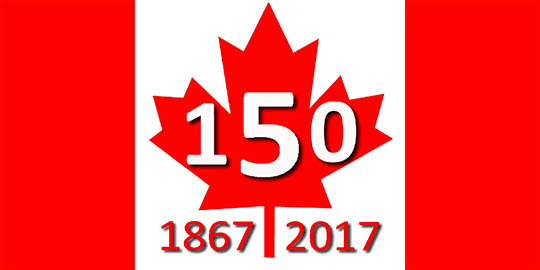

Canada 150 and the Modern Workplace: Emerging Health and Safety Concerns

By Paul Andre — National Newswatch — Aug 19 2017
Earlier this summer, Canada celebrated its 150th birthday. During Canada Day celebrations, Canadians reflected on our history, our values, and our future. Indeed, throughout 2017, many Canadians have thought deeply about how far Canada has come since 1867 and how we can shape another great 150 years. For our part, the Board of Canadian Registered Safety Professionals (BCRSP), a leading certification body for occupational health and safety (OHS) professionals across the country, has focussed our reflections on how to improve OHS outcomes in Canada’s ever-evolving workplaces.
Canada’s workplaces and workforce have changed dramatically over the past 150 years. Canadians have transitioned from hewers of wood and haulers of water to participants in a fully-diversified economy, in which our resource industries thrive alongside firms that are at the cutting-edge of the digital economy. Most experts agree that the future promises even more change, at a heightened pace.
As workplaces have changed, so too have the issues that confront workers. Because of that, OHS laws, regulations, and practices that were introduced in previous decades, reflecting the circumstances of those times, may now need to be updated or reconsidered. Additionally, as society as a whole evolves, the very definition of OHS must change as well.
There are three areas of OHS in particular that stakeholders will need to focus on and understand better in order to ensure that Canadian workers are healthy, protected, and respected in their workplaces in the coming years:
Mental health
In 2016, the World Health Organization led a study which concluded that, without treatment, 12 billion working days will be lost due to depression and anxiety each year between 2016 and 2030. Yet, mental health continues to be a taboo subject in the workplace. Moving forward, employers will need to push past stereotypes and develop modern OHS policies that promote mental health in the workplace. “Psychological health and safety (PHS) is embedded in the way people interact with one another on a daily basis, it is part of the way working conditions and management practices are structured.” Bearing this in mind mental health is a significant challenge across workplaces. The Canadian Mental Health Commission has reported that, in any given year, one in five people in Canada will experience a mental health problem or illness, with a cost to the economy well in excess of 50 billion dollars. A Psychological Health and Safety Management System can help an organization identify hazards that can contribute to psychological harm to the worker. It is a preventive approach that assesses your workplaces practices and identifies those areas of concern.
Workplace harassment
One of the most important ways to improve OHS outcomes in the near future is to gain a better understanding of workplace harassment and violence, and ensure that employers are properly equipped to address those issues. Better risk assessment and reporting mechanisms, as well as training, are key tools for accomplishing that goal. Just as workers are trained to recognize and prevent safety risks on a construction site or in a factory, employers should be training their staff to recognize and prevent workplace harassment and violence.
Marijuana in the workplace
The Federal Government’s framework for the legalization of marijuana presents fundamental challenges for OHS. A report published by the Human Resources Professionals Association in July concluded that employers do not feel adequately prepared for the impact that legalization might have on the workplace. According to the survey, entitled Clearing the Haze, “45.9% of employers do not believe their existing policy adequately covers any potential workplace issues that may arise with the legalization of recreational marijuana.” As June 2018, the Federal Government’s target date for legalization approaches, OHS professionals are being asked to ensure that policies which traditionally considered marijuana an illicit substance are updated to reflect its changing legal status, while at the same time ensuring that workplace health and safety is not compromised.
These three issues illustrate that, as Canada’s economy and society evolve, OHS professionals are being called upon to manage an increasingly complex spectrum of workplace health and safety issues. In that challenging context, BCRSP is committed to ensuring that OHS professionals are well-equipped to deal with the workplaces of today and tomorrow.
Paul Andre, CRSP, Chair of the Board of Governors of the Board of Canadian Registered Safety Professionals and Acting President and CEO of Workplace Safety North.